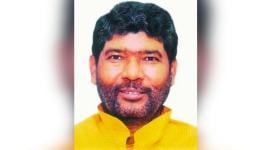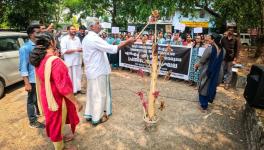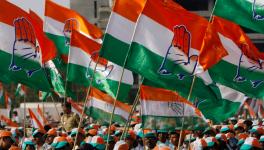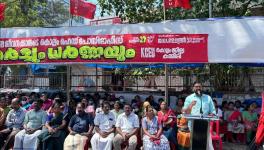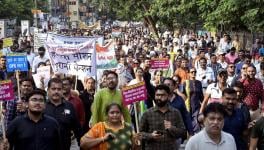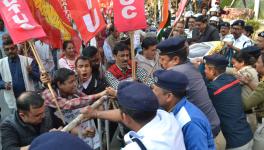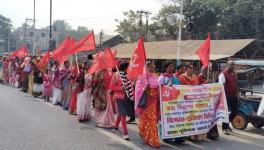WB: Pharma Employees to Fight Against Retrenchment and Adverse Sales Promotion Tactics
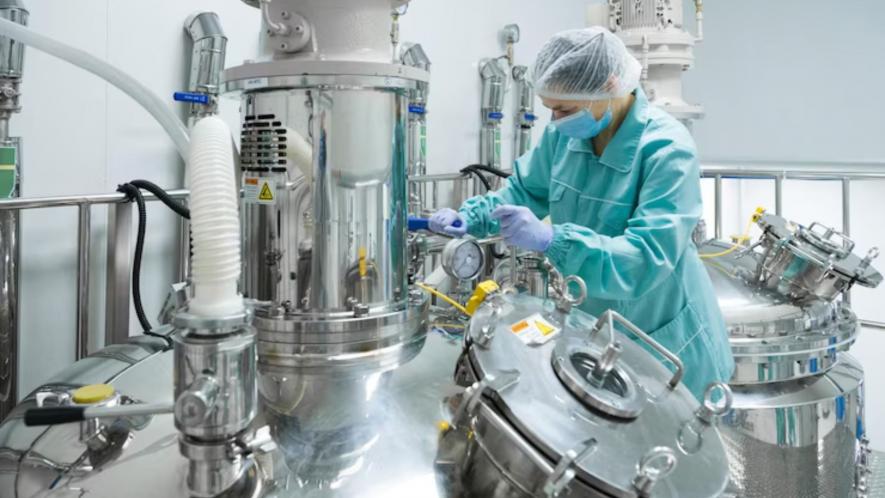
Representational Image. Image Courtesy: Freepik
Kolkata: Shantanu Mitra, 54, who works with Sanofi India Ltd, is shocked at the developments in the pharma sector.
"We do not have an eight-hour work schedule; there is no declaration on minimum wage in West Bengal. In such circumstances, we have to work where new technologies amount to digital trespassing. Post-COVID, our job conditions have been deteriorating as there are no statutory service conditions."
There are around five lakh medical representatives across the country. In West Bengal, the number is around 45,000.
Most medical representatives are unionised. West Bengal Medical and Sales Representatives Union (WBMSRU), the largest union in the sector, has around 22,000 members.
A medical representative is tasked with promoting pharma products to doctors. In most cases, the salary is performance-related. In local companies, medical representatives earn around Rs 8,000-10,000; in multinational companies, the salary can go as high as Rs 80,000.
Mitra recently attended the 19th state conference of WBMSRU in Siliguri. The Centre of Indian Trade Unions (CITU) general secretary, Tapan Sen, spoke at the conference.
The first day of the conference saw a rally at Kanchenjunga Stadium. The attendees included CPIM state secretary MD Salim and CITU leader Saman Pathak, among others.
The conference elected Subhrangshu Bhattacharya as the president. Basab Roychoudhury and Tinka Majhi were elected as secretary and treasury, respectively. A 105-member state committee and 19-member secretariat were also constituted on the last day of the conference.
"After COVID, the codification of 29 labour laws into four labour codes and the deletion of the Sales Promotion Act 1976 have changed our nature of work. Multinational companies are now exploring digital avenues, compromising the rights of medical representatives. It's a helpless situation. Field workers' councils are being attacked as laws have been diluted. Our place of work, the doctors' chambers, is being curtailed, especially in the Central government hospitals. The pharma company owners are not taking any responsibility. We are being thrust with sales targets," Mitra said.
Elaborating on the woes of medical representatives, Mitra mentioned how they face troubles from their companies.
"In many cases, reporting portals are being switched off. We get transferred to remote places. At times, our salaries get stopped; some employees have even been terminated. The advent of generic drugs by the Central government has created a dichotomy. If the prices of drugs are an issue, then drug price regulation should be taken up. The government is unwilling to take such measures but is going ahead with generic drugs. Furthermore, the absence of minimum wage regulation does not help our situation. Therefore, we need a movement for better wages for medical and sales promotion employees working in the sector."
Talking to NewsClick, Roychoudhury, the newly-elected secretary of WBMSRU, said, "The attack is now digital and centred around surveillance and tracking of individuals' movements. Secondly, sales as a condition of service of medical representatives are being added. Though sales promotion is an industry, it is being added as a precondition for salary. They are doing away with fixed-term salaries. We are waging a movement against this. Thirdly, the field councils are under attack, and bilateral agreements are neglected. Unilateral imposition of workload is happening. Medical representatives are forced to administer camps for taking blood samples and other tests without training."
Roychoudhury explained how the 1970 Drug Price Control Act had imposed a cap on profiteering, which was first diluted and then abolished in 2013.
"We demand that 5% of GDP should be allocated as the budget for healthcare. We have also published a booklet titled, 'Medicine and True Information,' for common people."
Get the latest reports & analysis with people's perspective on Protests, movements & deep analytical videos, discussions of the current affairs in your Telegram app. Subscribe to NewsClick's Telegram channel & get Real-Time updates on stories, as they get published on our website.









